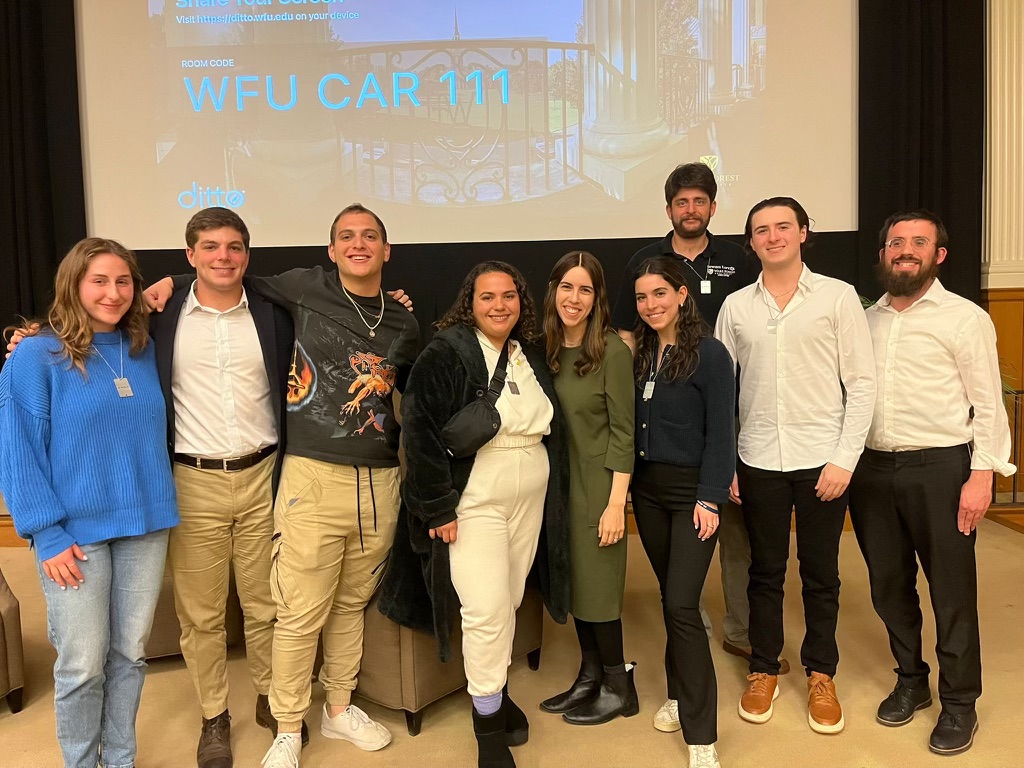Venturing to the upper floors of ZSR Library during midterm season, one can encounter groups of students poring over textbooks and notes while preparing for upcoming exams. Amongst these students, one can also find a cluster of students and librarians chatting and enjoying a sense of camaraderie in a small, cozy room tucked in the right-hand corner of the Wilson Wing on the fourth floor. At 4 p.m. every other Friday, students exchange their textbooks for graphic novels and engage in lively discussion during the meeting of the Graphic Novel Book Club.
Within this club, students and librarians are given a chance to discuss their passion for graphic novels and develop a close-knit community of members with similar interests. Reading a variety of graphic novels from superhero stories like Black Hammer: Secret Origins by Jeff Lemire to memoirs like Can’t We Talk About Something More Pleasant? by Roz Chast, students are exposed to different literary elements and are encouraged to broaden their literary horizons.
As freshman Benny Potter attested, “It’s important to know that comic books span farther than superheroes and villains.”
Just like other genres of books, graphic novels cover a plethora of themes and topics that have literary merit and invite readers to engage in intellectual conversation. In fact, one might be surprised to hear discussions about a graphic novel that are similar to those one might have inside Tribble Hall during an English class.
During the discussion about Black Hammer: Secret Origins on Friday, Oct.5, members analyzed themes like the gender roles of women in the novel, characterization like the protagonist Golden Gail’s development from angsty teen to superhero, and comparisons between this graphic novel and other works of literary merit. Developing not only a profound love for the genre of graphic novels, but also the analytical skills for close readings of text, this club fuses two elements of Wake Forest culture: the small, close-knit community and the bookish, academic environment.
Furthermore, Meghan Webb, the Instruction and Outreach Librarian, is in charge of a literary initiative to collect graphic novels for the library. Through the graphic novel book collection, she hopes to give students access to a wider range of reading materials, so they can easily access the sequel to a book chosen for last week’s Graphic Novel Book Club meeting or check out another graphic novel that piques their interest.
Providing the opportunity to access the contemporary genre of graphic novels within the traditional institution of the university’s library diversifies the available selection of reading material for students and facilitates new and unique methods of literary discussion. Together, this initiative and the Graphic Novel Book Club foster academic progress within the realm of graphic novels.
For instance, during a book club meeting, members discuss expanding the conventional analysis of diction to include the manifestation of a distinctive “voice” for a character through an illustration of a character’s font in a graphic novel. Exemplifying this progressive mode of literary discussion, Black Hammer: Secret Origins character Talky-Walky has robotic-typed font that portrays his mechanical, automated nature.
Through the application of progressive methods of literary analysis to the burgeoning genre of graphic novels, students can continue their academic development to include an alternative to traditional literature that still fits within the goals and context of a liberal arts education.
Senior Hannah Goodwin attested to the value of the connection formed between librarians and students through this initiative and the Graphic Novel Book Club.
“The best part is the wisdom and information that we get from the librarians, from interesting perspectives on the culture around [the graphic novel] to interesting pop culture in general,” she said.
Within the unified circle of librarians and students, the exchange of ideas facilitates a communal learning environment that is beneficial to the social and academic development of the members of the Graphic Novel Book Club.













